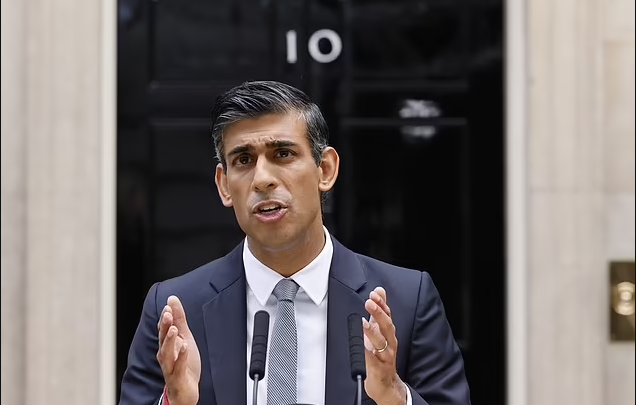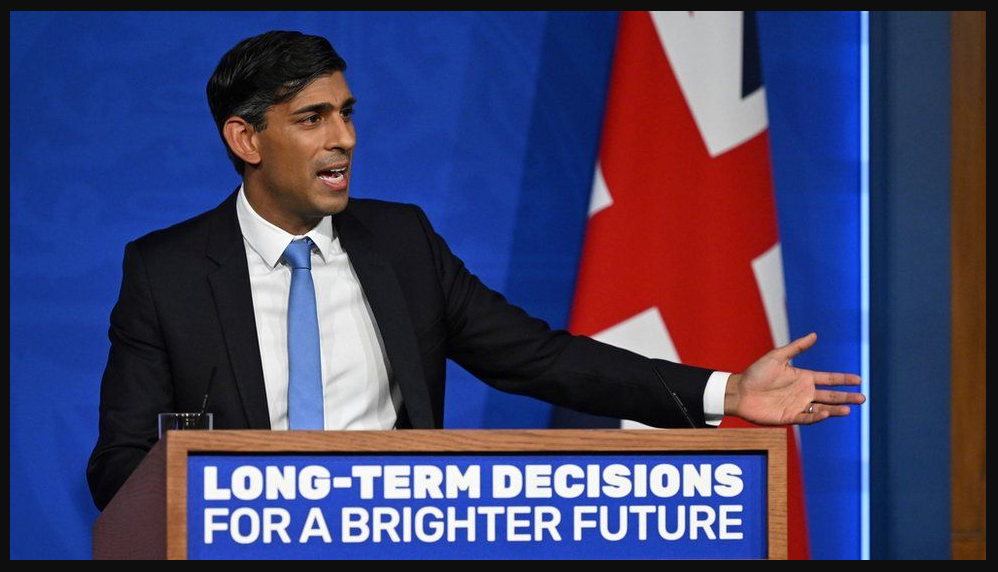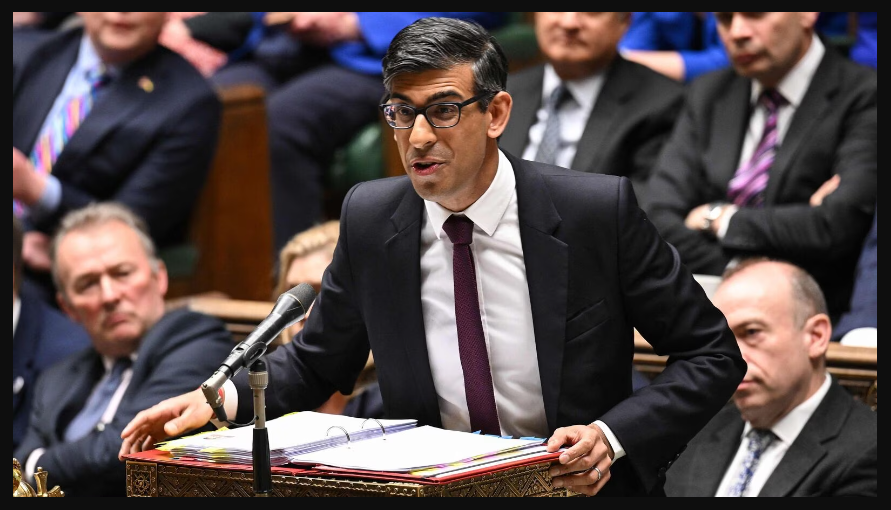The recession that hit UK’s economy in the second half of 2023 presented a challenging environment for Prime Minister Rishi Sunak, who has pledged to accelerate growth in anticipation of the anticipated 2024 election.
In the second half of 2023, the UK experienced a mild recession, demonstrating that Prime Minister Rishi Sunak has not yet fulfilled his promise to expand the economy.
As per the Office for National Statistics (ONS), the gross domestic product (GDP) experienced a 0.1% decline from July to September, but a 0.3% decline in the three months preceding December was less than anticipated.
A less notable 0.1% decrease from October to December was anticipated by economists surveyed by Reuters. The fourth-quarter GDP decline was the biggest since the first quarter of 2021, according to the ONS. It has been nearly two years since the British economy grew. The Bank of England predicts that in 2024, it will begin to rise somewhat.
With the exception of the first year of the pandemic, the economy expanded by 0.1% overall in 2009, which was the slowest annual growth the UK had experienced since 2009. The first three months of last year saw the UK economy grow by a quarter.
“The government will undoubtedly be alarmed by this news, as businesses were already aware of the challenges they confront,” stated Alex Veitch, the British Chambers of Commerce’s director of policy and insight. “In less than three weeks, the chancellor has to use his budget to lay out a clear course for businesses and the economy to grow.”
There are “signs the British economy is turning a corner,” according to Finance Minister Jeremy Hunt, and “we must stick to the plan – cutting taxes on work and business to build a stronger economy.”

UK bonds rose for a second day, with 10-year yields dropping below 4% for the first time in a week after hitting a two-month high near 4.2%. The likelihood of monetary policy easing this year has increased, with money markets fully pricing in three quarter-point cuts and a 10% chance of a fourth, with the first reduction anticipated by August.
The ONS reports that after increasing by 0.2% in November, monthly economic output fell by 0.1% in December. The Reuters poll for December indicated a 0.2% decrease. A third day of losses began with the pound falling 0.2% against the dollar at $1.2542.
Shortly after the GDP data was released, the value of sterling slightly decreased in relation to the euro and the dollar. As per the ONS, the primary reasons behind the decline in GDP were the manufacturing, construction, and wholesale sectors.

British Prime Minister Rishi Sunak said he is “totally up for the fight” of persuading voters to support his policies in an effort to win another term. The general election in the United Kingdom is expected to take place later in the year. The forty-three-year-old leader of Indian descent expressed optimism, saying that the economy was “pointing in the right direction and the future is going to be better.”
“This year has started off with a sense that the nation is heading in the right direction,” he continued. “This is because the plan is working, the economy is doing better, mortgage rates are beginning to decline, and we have been able to reduce taxes.” I think the pressure is beginning to lessen, and hopefully we can keep moving forward and achieve even more this year.”
After assuming office in October 2022, Rishi Sunak made growing the economy one of his five main promises, along with reducing debt, halving inflation, shortening the wait times for health services, and halting boat migration across the English Channel.



